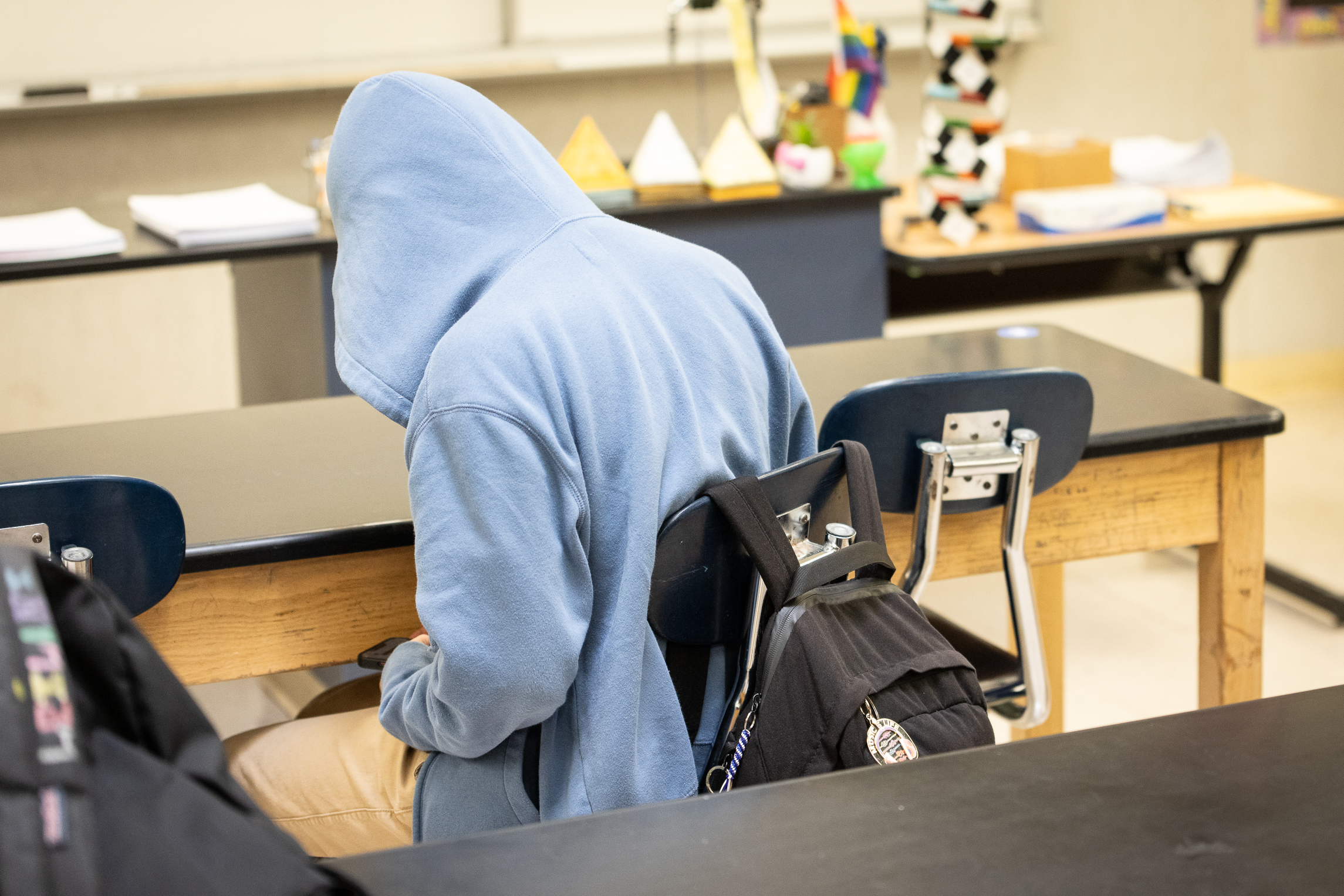Gov. Gavin Newsom on Aug. 13 asked schools across California to restrict student access to smartphones as the new academic year kicks off, with the goal of reducing tech-related mental health concerns, academic challenges, and social risks related to cell phone use.
In a letter, Newsom warned school leaders about the purported dangers of excessive smartphone use among youth. He referenced a 2024 study from the Pew Research Center that revealed 73 percent of U.S. teens feel “peaceful” when they don’t have their cell phones and 44 percent said not having a smartphone with them makes them “feel anxious.”
He also cited research that has found a link between increased anxiety, depression, and other mental health issues with excessive smartphone use among children.
“As I work with the Legislature to further limit student smartphone use on campus, there is no reason for schools to wait,” the governor said in the letter.
He also highlighted a warning by U.S. Surgeon General Vivek Murthy last year about social media’s effects on youth mental health.
The surgeon general’s advisory noted that up to 95 percent of youth ages 13–17 reported using a social media platform, with more than one-third stating they are on social media “almost constantly.”
According to the advisory, frequent social media use may be linked with changes in a child’s developing brain, affecting responses like impulse control, social behavior, and emotional regulation.
“The most common question parents ask me is, ‘is social media safe for my kids’. The answer is that we don’t have enough evidence to say it’s safe, and in fact, there is growing evidence that social media use is associated with harm to young people’s mental health,” Murphy said in a 2023 statement.
The governor said the surgeon general’s advisory, combined with the latest research on the matter, indicated an urgent need to provide “guardrails” for student smartphone use in schools.
Excessive smartphone use has been linked to harmful behaviors, including cyberbullying, which occurs when someone uses technology—typically through social media—to harass or target another person, say safety advocates.
For example, 40 percent of 5th graders nationwide report being victims of cyberbullying, according to Marc Berkman, CEO of the Organization for Social Media Safety.
The organization is focused exclusively on educating the public nationwide about social media safety.
“Social media safety—it’s very much about understanding the various threats that are either caused or exacerbated through social media use and mitigating or preempting those harms,” Berkman told The Epoch Times.
He cited instances of drug marketing, fentanyl trafficking, and sextortion on smartphones via social media that are affecting “millions of kids” across the U.S.
Berkman said that when schools implement a cell phone policy that restricts student access to social media, incidents of cyberbullying are reduced and overall screen time also declines on campus.

California Gov. Gavin Newsom speaks during a news conference after meeting with students at James Denman Middle School in San Francisco on Oct. 1, 2021. (Justin Sullivan/Getty Images)
“Given what we’re seeing and taking a safety-first approach, we would at this point like to see schools move toward comprehensive bans on smartphones,” Berkman said.
However, he acknowledged the need for flexibility on the issue for families with different needs and parents who might want their child to have a phone in case of an emergency.
Smartphone Policies in California
In 2019, the governor signed AB 272, which authorized California governing bodies of a school district, county office of education, or charter school to adopt a policy limiting or prohibiting the use of smartphones by students on campus.
Newsom called the bill, which was authored by Democrat Assemblyman Al Muratsuchi, a “crucial step in our efforts to minimize distractions and foster a more conducive environment for our students to learn.”
“This new law will encourage school districts to develop their own policy that strikes a balance between allowing appropriate student use of smartphones at school, while making sure that smartphones are not interfering with a student’s educational, social and emotional development,” Muratsuchi in a statement after the bill became law.
And school districts are taking advantage of the legislation, particularly in Los Angeles.
On Aug. 12, students returning to campus in the Los Angeles Unified School District were subject to a new rule banning smartphones in classrooms, following a vote from the school board earlier this year prohibiting the devices.
The new rule affects nearly 430,000 students enrolled in Los Angeles, according to the district’s website.
Newsom applauded the school district for their policy.
“Every classroom should be a place of focus, learning, and growth,” he said.
In May, the Roseville City School Board in Central California also adopted a policy that requires middle school students to put their cell phones away when they arrive on campus. The phones will be returned to students at the end of the school day.
“I am grateful for [Roseville’s] commitment to protecting and improving the mental health and academic outcomes of students in our region,” said Assemblyman Josh Hoover, who represents Assembly District 7, including Roseville, in a statement May 10.
In February, Hoover introduced AB 3216, which proposes requiring a school district to develop and adopt an updated policy every five years to limit or prohibit cell phone use in classrooms.
The legislation passed the Assembly in May, and two Senate committees this summer, but was referred to what’s known as the suspense file Aug. 5 while its fiscal impact is considered. Bills placed on suspense will be heard again Aug. 15 when the appropriations committee decides whether to move them forward or shelve them permanently.
Newsom additionally said in his letter that reducing smartphone usage on campus leads to improved concentration, social interactions, and academic outcomes for students.
“Working together, educators, administrators, and parents can create an environment where students are fully engaged in their education, free from the distractions on the phones and pressures of social media,” he said.














